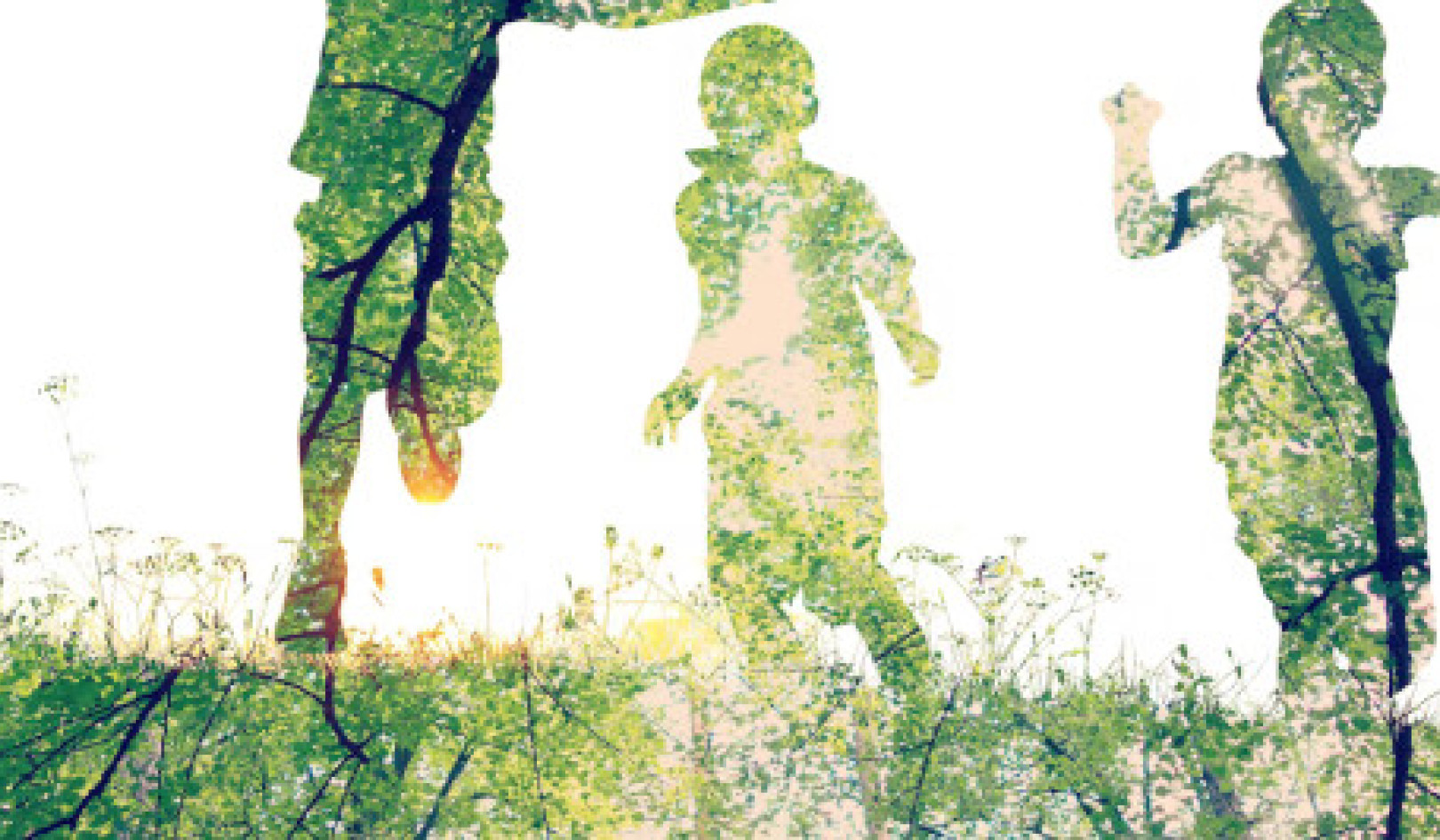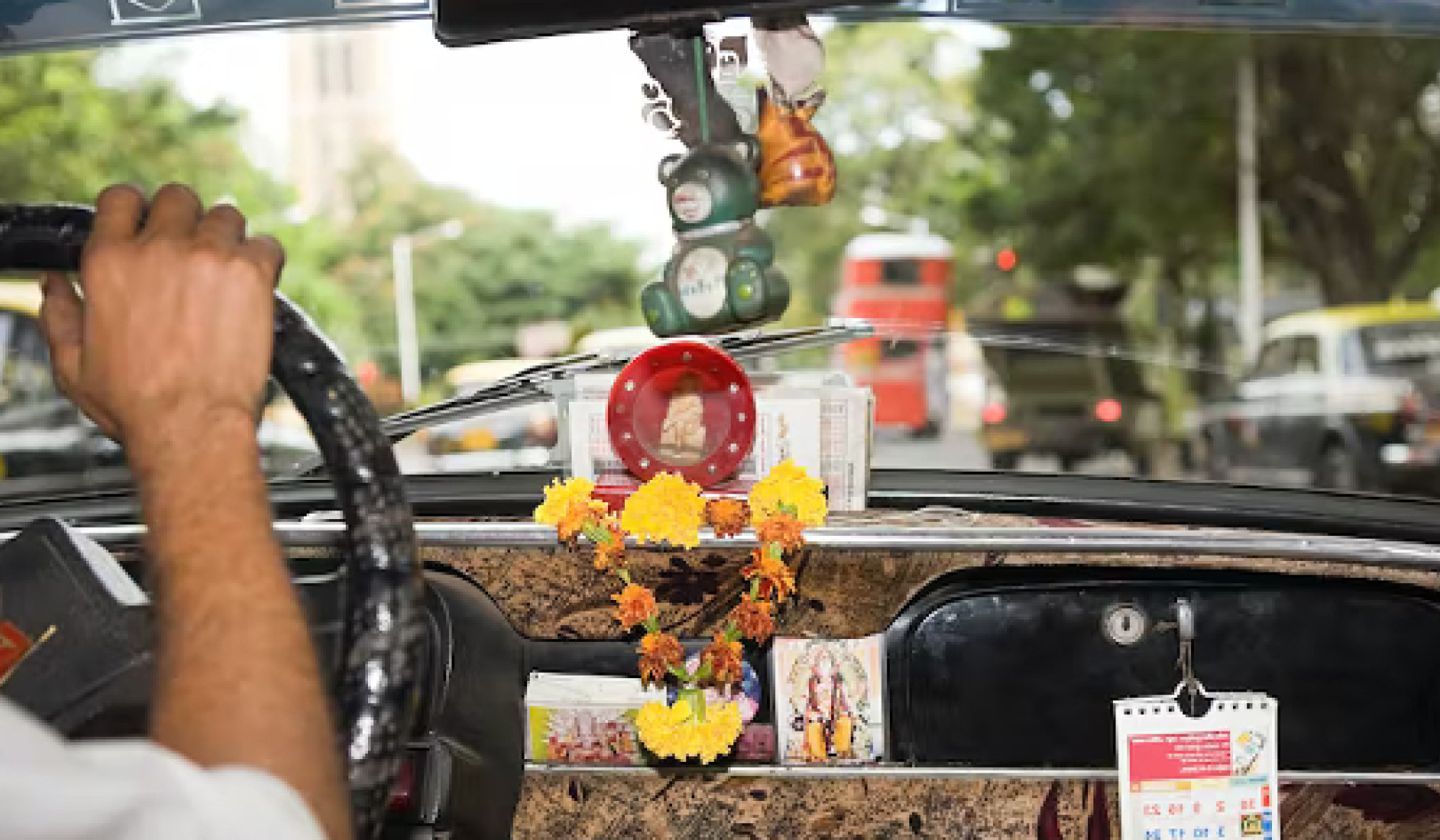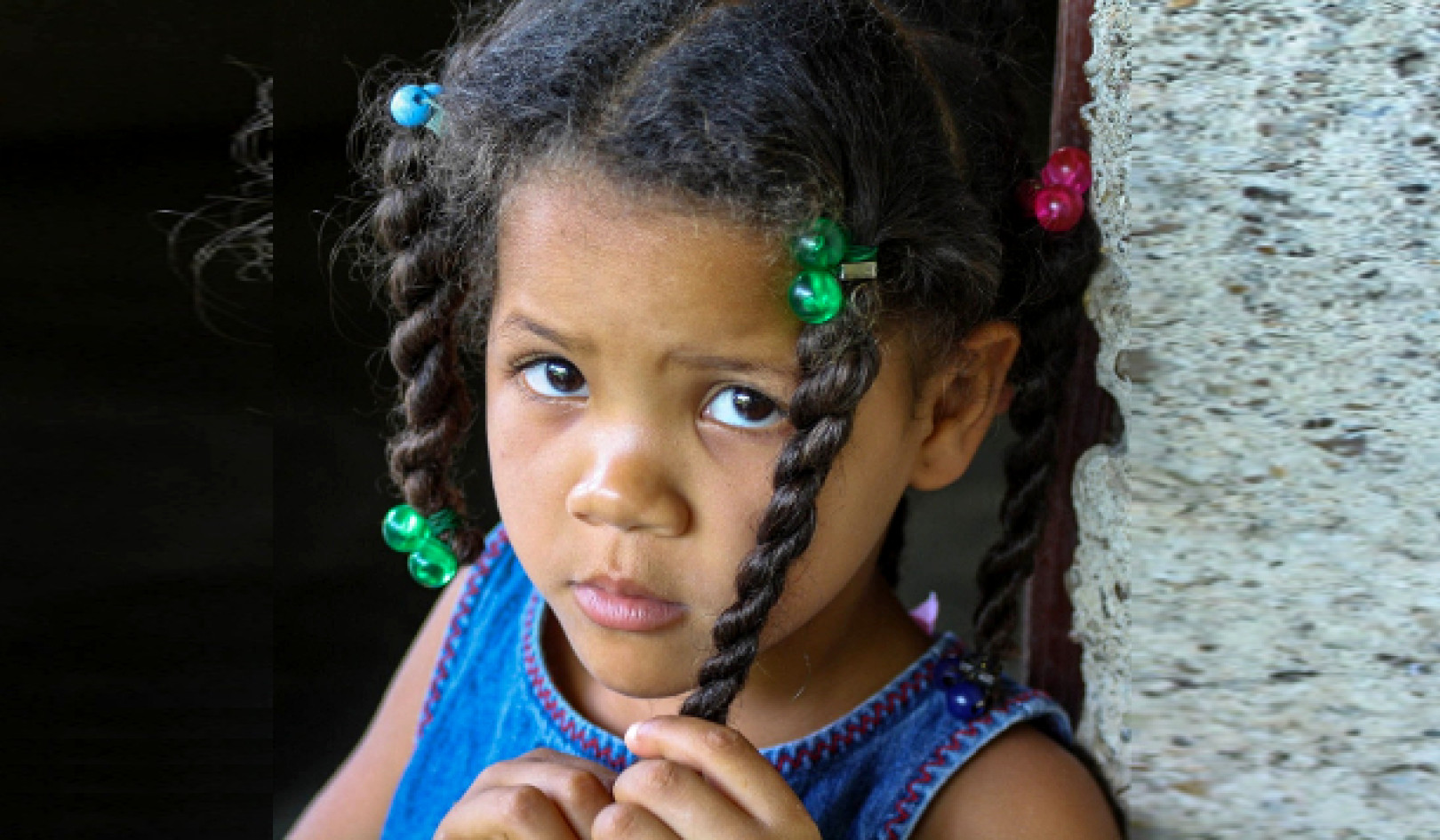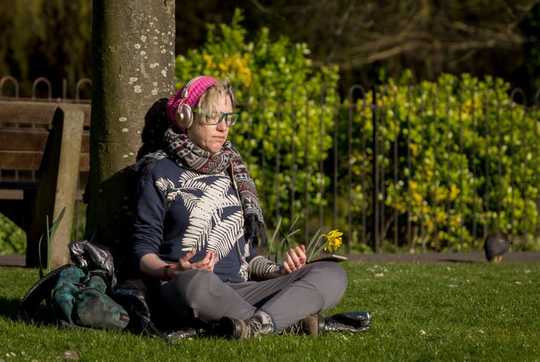 Richard Baker / In Pictures via Getty Images
Richard Baker / In Pictures via Getty Images
Buddhist meditation centers and temples in coronavirus-hit countries around the world have been closed to the public in order to comply with social distancing measures.
But Buddhist teachers are offering their teachings from a distance in order to remind their communities about key elements of the practice.
In Asia, Buddhist monks have been chanting sutras to provide spiritual relief. In Sri Lanka, Buddhist monastic chanting was broadcast over television and radio. In India, monks chanted at the seat of the Buddha’s enlightenment, the Mahabodhi Temple in the eastern state of Bihar.
Monks praying at the Mahabodhi Temple in India.
{vembed Y=qd-6da4d0Zk}
Buddhist leaders argue that their teachings can help confront the uncertainty, fear and anxiety that has accompanied the spread of COVID-19.
This is not the first time Buddhists have offered their teachings to provide relief during a crisis. As a scholar of Buddhism, I have studied the ways in which Buddhist teachings are interpreted to address social problems.
Engaged Buddhism
The Zen master Thich Nhat Hanh first coined the concept of “engaged Buddhism.” During the Vietnam War, faced with the choice between practicing in isolated monasteries or engaging with the suffering Vietnamese people, he decided to do both.
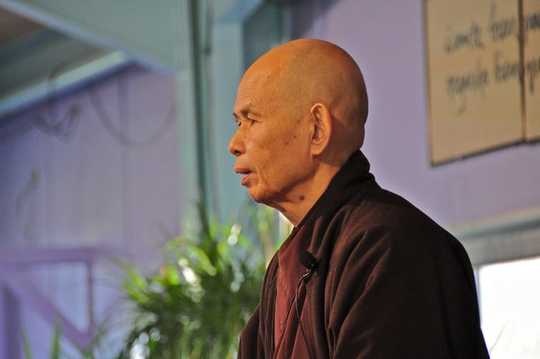 Buddhist monk Thich Nhat Hanh. Geoff Livingston/Flickr, CC BY-ND
Buddhist monk Thich Nhat Hanh. Geoff Livingston/Flickr, CC BY-ND
He later ordained a group of friends and students into this way of practice.
In recent years many Buddhists have been actively involved in political and social issues throughout much of Asia as well as parts of the western world.
The following five teachings can help people in current times of fear, anxiety and isolation.
1. Acknowledge the fear
Buddhist teachings state that suffering, illness and death are to be expected, understood and acknowledged. The nature of reality is affirmed in a short chant: “I am subject to aging … subject to illness … subject to death.”
This chant serves to remind people that fear and uncertainty are natural to ordinary life. Part of making peace with our reality, no matter what, is expecting impermanence, lack of control and unpredictability.
Thinking that things should be otherwise, from a Buddhist perspective, adds unnecessary suffering.
Instead of reacting with fear, Buddhist teachers advise working with fear. As Theravada Buddhist monk Ajahn Brahm explains, when “we fight the world, we have what is called suffering,” but “the more we accept the world, the more we can actually enjoy the world.”
2. Practice mindfulness and meditation
Mindfulness and meditation are key Buddhist teachings. Mindfulness practices aim to curb impulsive behaviors with awareness of the body.
For example, most people react impulsively to scratch an itch. With the practice of mindfulness, individuals can train their minds to watch the arising and passing away of the itch without any physical intervention.
With the practice of mindfulness, one could become more aware and avoid touching the face and washing hands.
Meditation, as compared to mindfulness, is a longer, more inward practice than the moment-to-moment mindful awareness practice. For Buddhists, time alone with one’s mind are normally part of a meditation retreat. Isolation and quarantine can mirror the conditions necessary for a meditation retreat.
Yongey Mingyur Rinpoche, a Tibetan Buddhist monk, advises watching the sensations of anxiety in the body and seeing them as clouds coming and going.
Regular meditation can allow one to acknowledge fear, anger and uncertainty. Such acknowledgment can make it easier to recognize these feelings as simply passing reactions to an impermanent situation.
3. Cultivating compassion
Buddhist teachings emphasize the “four immeasurables”: loving-kindness, compassion, joy and equanimity. Buddhist teachers believe these four attitudes can replace anxious and fearful states of mind.
When emotions around fear or anxiety become too strong, Buddhist teachers say one should recall examples of compassion, kindness and empathy. The pattern of fearful and despairing thoughts can be stopped by bringing oneself back to the feeling of caring for others.
Compassion is important even as we maintain distance. Brother Phap Linh, another Buddhist teacher, advises that this could be a time for all to take care of their relationships.
Dealing with isolation.
This could be done through conversations with our loved ones but also through meditation practice. As meditators breathe in, they should acknowledge the suffering and anxiety everyone feels, and while breathing out, wish everyone peace and well-being.
4. Understanding our interconnections
Buddhist doctrines recognize an interconnection between everything. The pandemic is a moment to see this more clearly. With every action someone takes for self-care, such as washing one’s hands, they are also helping to protect others.
The dualistic thinking of separateness between self and other, self and society, breaks down when viewed from the perspective of interconnection.
Our survival depends on one another, and when we feel a sense of responsibility toward everyone, we understand the concept of interconnection as a wise truth.
5. Use this time to reflect
Times of uncertainty, Buddhist teachers argue, can be good opportunities for putting these teachings into practice.
Individuals can transform disappointment with the current moment into motivation to change one’s life and perspective on the world. If one reframes obstacles as part of the spiritual path, one can use difficult times to make a commitment to living a more spiritual life.
Isolation in the home is an opportunity to reflect, enjoy the small things and just be.
About The Author
Brooke Schedneck, Assistant Professor of Religious Studies, Rhodes College
This article is republished from The Conversation under a Creative Commons license. Read the original article.

Related Books:
The Fearless Mindset: The Empowering Secrets to Living Life Without Limits
by Coach Michael Unks
This book offers insights and strategies for overcoming fear and achieving success, drawing on the author's experiences as a coach and entrepreneur.
Click for more info or to order
The Gifts of Imperfection: Let Go of Who You Think You're Supposed to Be and Embrace Who You Are
by Brené Brown
This book explores the challenges of living with authenticity and vulnerability, offering insights and strategies for overcoming fear and building a fulfilling life.
Click for more info or to order
Fearless: The New Rules for Unlocking Creativity, Courage, and Success
by Rebecca Minkoff
This book offers insights and strategies for overcoming fear and achieving success in business and life, drawing on the author's experiences as a fashion designer and entrepreneur.
Click for more info or to order
Feel the Fear . . . and Do It Anyway
by Susan Jeffers
This book offers practical and empowering advice for overcoming fear and building confidence, drawing on a range of psychological and spiritual principles.
Click for more info or to order
The Anxiety Toolkit: Strategies for Fine-Tuning Your Mind and Moving Past Your Stuck Points
by Alice Boyes
This book offers practical and evidence-based strategies for overcoming anxiety and fear, drawing on a range of cognitive and behavioral techniques.




















